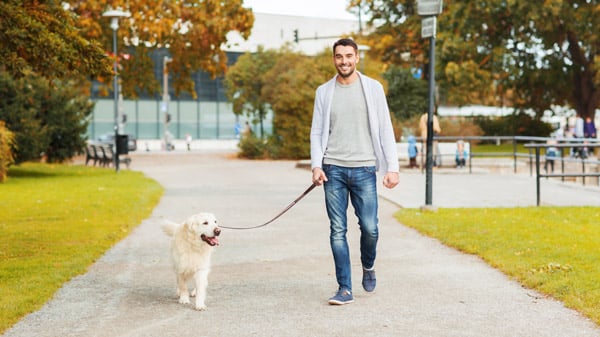Every guy faces stress, but some face more stress than others.
Take John Herdman, head coach of Canada’s men’s national soccer team. For one thing, the 48-year-old Englishman coached the women’s national team to bronze medals in consecutive Olympics. A controversial extra-time loss to the United States in 2012 was seen by many as one of the greatest (and most stressful!) knockout matches in major-tournament history.
For another, he manned the sidelines during the men’s team’s thrilling run to the upcoming 2022 FIFA World Cup, which was made especially stressful by the COVID-19 pandemic. Last but not least, when Canada plays Belgium on Nov. 23, it will mark the country’s return to the planet’s most-watched sporting event after a 36-year absence. Talk about pressure!
In Episode 4 of the Don’t Change Much Podcast, John shares easy strategies for dealing with stress that any guy can use. Here are some of his top tips:
Avoid traps like alcohol
John describes the stress-masking effect of alcohol as “a trap” he was able to avoid. At first, alcohol may provide a feeling of relief. That’s one of the things that makes drinking appealing. Anyone who’s had a drink can relate to the “ahhhh” feeling that comes with the first sip. Alcohol is a biochemical depressant that triggers this feeling.
The trouble is that relief is usually short-lived. Research shows that drinking too much—which for guys is more than 3 drinks in one sitting—ultimately causes or worsens stress. The good news: there are plenty of ways to relax that don’t involve drinking too much. On that note…
Maintain routines
“Structure is critical,” John says, adding that daily routines can help you to feel more in control when life gets hectic.
This can be as easy as getting up at the same time each day, giving yourself some time to eat breakfast, making sure you take regular breaks and not skipping meals at work. When it’s lunchtime, leave your work area and eat elsewhere. At the end of the workday, shift gears by shutting off tools and electronics. Meanwhile, a brief walk after work can counterbalance the stress of rush hour during your commute home and help you shift from work to personal or family life.
Stay active

Working as he does with elite athletes, John uses two daily blocks of exercise to “sweat out” stress as part of his routine.
For the rest of us, something as easy as a 20-minute walk outside each day or a half-hour of backyard playtime with the kids and/or dog can kick stress to the curb. It doesn’t have to be vigorous exercise—by getting active regularly, you’re sending messages to your brain’s reward centre that say, “Hey, that felt good, let’s do it again!”
By sending that message over and over again, the urge to get active will become automatic. Here’s the kicker (no soccer pun intended): if you’re feeling a bit off, you will be less motivated to get active, but the benefits will be even greater.
Maintaining social connections

By bringing coaching staff together, on video calls or in-person, John made the social connections that helped him “stay on top of what could easily have been a negative spiral.”
Indeed, the isolation of the COVID-19 pandemic has shown us just how important it is to explore different ways to connect with others.
Why not pick up the phone and call an old friend? All of us have been living through a pandemic, so you’ll likely be pleasantly surprised that your buddy is as keen to reconnect as you are. Or go out and get a coffee. Then, when the counter staff or barista is making your coffee, try to start a conversation. “Hi, how are you?” is all it takes to connect to a community of people larger than ourselves.
Stay positive about the future
“Shifting my mentality towards the future, and focusing on the opportunities in front of me, leads to a more positive outlook and more positive behaviour,” John says.
Instead of letting negative thinking grind you down, focus on the positives in your life—friends, family, movies, music, activities you enjoy, CANADA BEING IN THE WORLD CUP, the list goes on—to get yourself going and boost your energy, improve your sleep, and clear your head. Here we go, here we go, here we gooooooo!!!
Keep a journal
John writes in a journal at around the same time most mornings to express gratitude for the good things in his life and to “pull my mind away from all the bad things that might be happening in order to lighten and brighten my days.”
Journaling doesn’t have to mean sitting alone at night and writing “dear diary” before pouring your heart out. That works for some guys, but for others, it can also be about problem-solving and figuring out what has worked or not worked for you that day. Or, as John often does, it can simply be about expressing gratitude in order to put a positive spin on life.
Take a break from screens
When it’s time to unwind before bed, John turns to what he calls “digital sunsets.” He puts his phone away and closes his laptop. This is an important end-of-day step because handheld electronics allow stress to resurface when you should be winding down.
Checking work email, sending texts, or browsing social media right before bed prevents your brain from being relaxed when your head hits the pillow. Ideally, knock it off 60 minutes before lights out.
Is there something you do to show stress a red card? Share your tips in the comments below!









Let’s Talk!
Did you enjoy this article? Let us know in the comments.
0 Comments